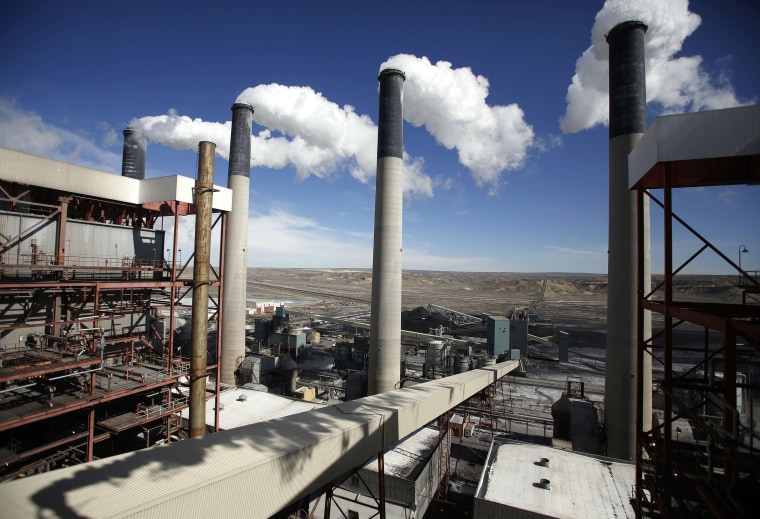The U.S. Supreme Court on Tuesday blocked enforcement of the Obama administration's ambitious new plan for cutting greenhouse gas emissions from power plants.
The justices granted a plea from 30 states that asked for a temporary hold on the new Clean Energy Plan while the lower courts decide whether the Environmental Protection Agency has the legal authority to impose it.
Four members of the court, Justices Ruth Bader Ginsburg, Stephen Breyer, Sonia Sotomayor, and Elena Kagan dissented and said they would have allowed the EPA to continue enforcing the rule during the court battle.
Announced last October, the plan seeks to shift the nation's energy production away from coal-burning power plants toward cleaner sources, including solar and wind power.
The states argued that EPA's proposed reductions on carbon emissions are impossible for existing power plants to meet and would force their operators to shut down them down, "a massive reordering of the states' mix of generation facilities."
If the rules are allowed to stand, the states said, the "EPA would no longer be an environmental regulator but rather the nation's central planning authority" — which they argued is an illegal overreach of the agency's authority and an unconstitutional intrusion on states’ rights.
A federal court in Washington, which is now reviewing the Clean Energy Plan, declined in January to put it on hold while the issue is pending. The states, joined by a coalition of business groups, then sought a stay from the Supreme Court.
Separately, a group of energy companies told the justices that EPA's Clean Power Plan will force 53 coal-fired electric generating units to shut down this year, with another three taken offline in 2018.
Eighteen other states are supporting the EPA, joined by the National League of Cities, saying they have "a compelling interest in reducing carbon-dioxide emissions in order to protect their residents' health and welfare from the dangers of climate change."
The policy is a centerpiece of the U.S. commitment to reach the pollution targets it pledged to meet at the UN climate summit in Paris late last year. By 2030, it would reduce carbon emissions to a level 32 percent below what they were in 2005.

